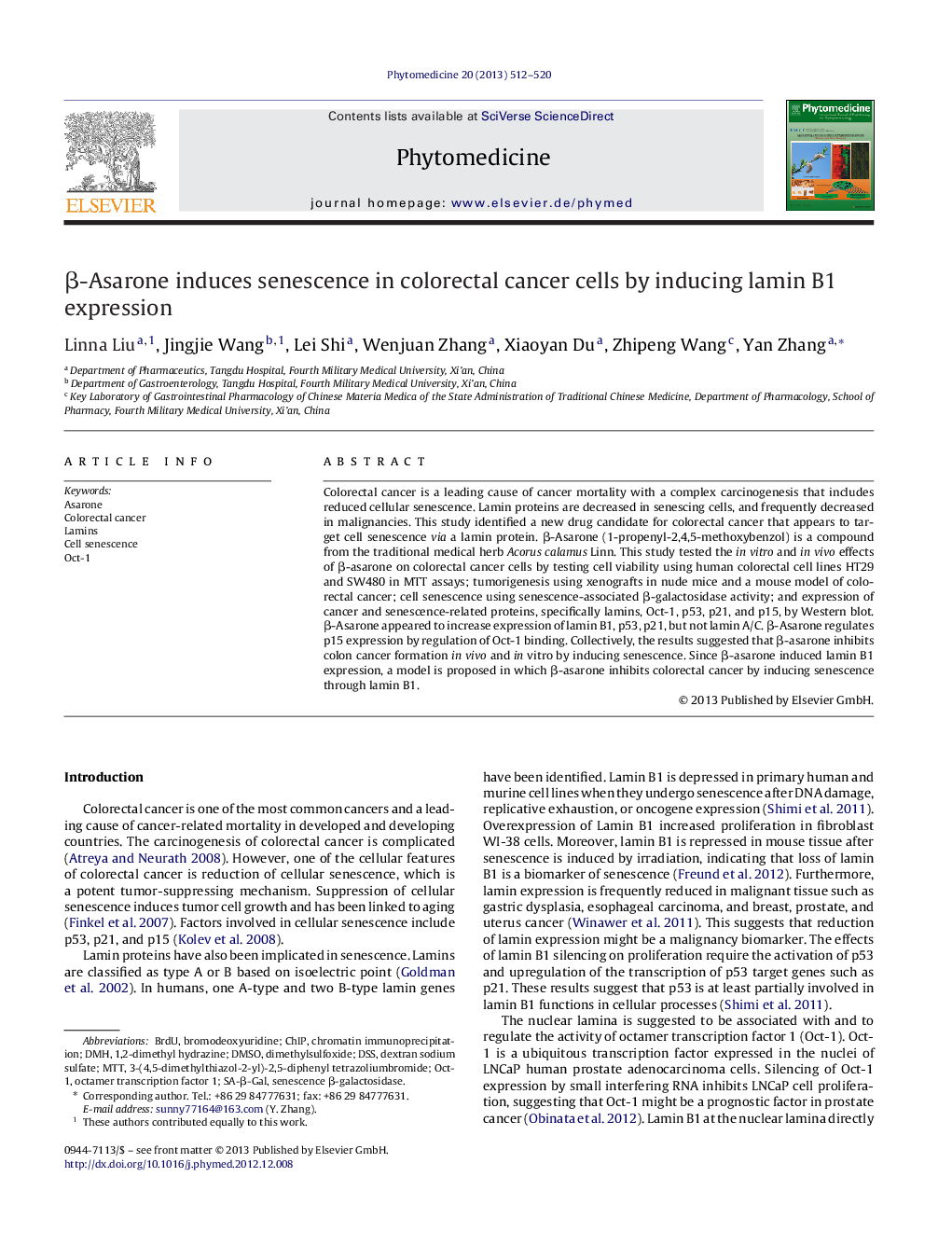| Article ID | Journal | Published Year | Pages | File Type |
|---|---|---|---|---|
| 2496760 | Phytomedicine | 2013 | 9 Pages |
Colorectal cancer is a leading cause of cancer mortality with a complex carcinogenesis that includes reduced cellular senescence. Lamin proteins are decreased in senescing cells, and frequently decreased in malignancies. This study identified a new drug candidate for colorectal cancer that appears to target cell senescence via a lamin protein. β-Asarone (1-propenyl-2,4,5-methoxybenzol) is a compound from the traditional medical herb Acorus calamus Linn. This study tested the in vitro and in vivo effects of β-asarone on colorectal cancer cells by testing cell viability using human colorectal cell lines HT29 and SW480 in MTT assays; tumorigenesis using xenografts in nude mice and a mouse model of colorectal cancer; cell senescence using senescence-associated β-galactosidase activity; and expression of cancer and senescence-related proteins, specifically lamins, Oct-1, p53, p21, and p15, by Western blot. β-Asarone appeared to increase expression of lamin B1, p53, p21, but not lamin A/C. β-Asarone regulates p15 expression by regulation of Oct-1 binding. Collectively, the results suggested that β-asarone inhibits colon cancer formation in vivo and in vitro by inducing senescence. Since β-asarone induced lamin B1 expression, a model is proposed in which β-asarone inhibits colorectal cancer by inducing senescence through lamin B1.
